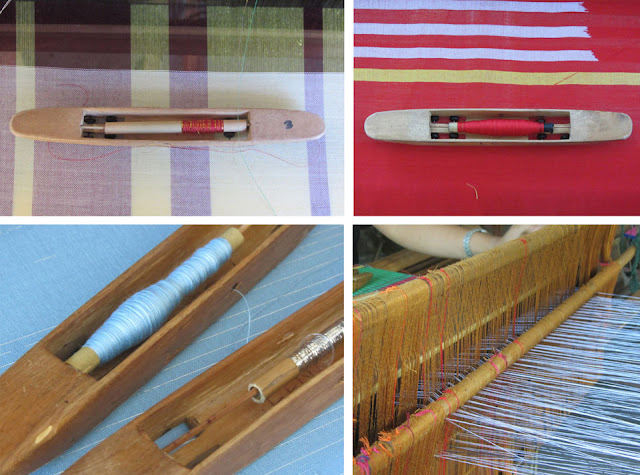Abused women find healing at the RCW
I will lend this space to an inspiring article written by May Grecia Rago of the Department of Social Welfare and Development (DSWD-) about how women find healing in the Regional Center for Women.
It sits secluded in one of the municipalities of Iloilo province. One would hear the quiet steps of children, the soft cries of babies, or the sounds of utensils and sewing machines. These sounds signal that the residents are busy with cooking and sewing while the others are attending to their children.
The scenario pictures the daily routine of the residents of the Regional Center for Women whose fate brought them to the place.
 |
Haydee Canilla, head of Regional Center for Women in Iloilo
|
The RCW was established in year 2000 with the joint efforts of the Congressional Spouses Foundation Incorporated, Department of Social Welfare and Development, and the Local Government Unit.
Target clients of RCW are disadvantaged women and children who are victims of domestic violence; battered or physically abused; victims of illegal recruitment; victims of involuntary or forced prostitution, victims of illegal recruitment; and children who are victims of neglect and abandonment.
 |
Residents during Food Processing training
|
Haydee Canilla, center head said most residents are victims of physical and emotional abuse. “Last year, we had five cases of victims of trafficking. We want to usher these women to healing and back to families and communities where they would be loved and protected,” she said.
“We are implementing a holistic approach for the healing and recovery of our residents. These include livelihood training for them, the conduct of counseling, and support of a psychologist and a nurse for them,” she added.
The services offered are:
* Interventions that seek to restore/develop the social functioning of the residents from admission to discharge and preparation for family reunification and community reintegration are undertaken.
* Case management. A multi-disciplinary team utilizing social work interventions which include but are not limited to counseling, casework, group, work, family/group/individual/therapy, etc is mobilized.
* Residential care and rehabilitation program – an alternative form of family care, providing 24- hour group living on a temporary basis to individuals whose needs cannot be adequately met by their own families and relatives over a period of time.
Client’s who are considered for residential care and other therapeutic services are those who are under threat and those exhibiting negative social functioning; and no significant person can provide the necessary protection and emotional support.
Number of cases
Canilla said that they currently have 14 cases, including seven women and seven children. Last year, they recorded a total of 30 cases under their care.
“Most of the cases are still physical abuse and emotional abuse. Also, last year, we had five cases of human trafficking,” said Canilla.
Despite this, Canilla noted a decreasing trend on cases of violence against women as to admission in the center. “We see that our advocacy for the prevention of violence against women and children has worked. We also acknowledge that there are still people who are silent when it comes to VAWC thus we continue on calling for vigilance to put a stop to it,” she said.
 |
Marites Soloveres talks on the prevention of VAWC during the RCW Women’s Month Celebration
|
Skills training
The RCW has also been implementing skills training. Specifically, these are training on food processing, sewing and handicraft making, cosmetology and foot spa training.
“We see the importance of skills training. It is one way of enabling our clients so that when they are back in their communities, they already have means to earn,” said Canilla.
Canilla said that most of the cases encountered by their residents are perpetrated by their partners—either husband or live-in partner.
“We call on women not to fall prey as victims. Once they allow it to happen, it will continue to happen. To all the women out there, if you feel abused or violated, you have to report to the nearest Local Social Welfare and Development Office (LSWDO) or the nearest DSWD office,” she said.
Canilla also mentioned that most women get abused by men who have vices—some are into alcohol and illegal drugs. Also, some are from dysfunctional families themselves.
“In relationships, it is important that there is open communication. At times, they will have to compromise. But, in no case, that abuse must be tolerated. We, at DSWD, as well as our counterparts in the LSWDOs, are willing to do counseling should it be needed,” she said.
 |
The RCW building for the residents
|
Learning
Canilla also sees to it that there are avenues for learning for the residents. She said that the houseparent teaches reading to residents who do not know how to read.
Also, they invite lecturers on various topics during special occasions.
Recently, they invited SPO4 Marites Soloveres to talk on the campaign to prevent VAWC during the Women’s Month celebration.
Healing
For Ana (not her real name), who used to be a ward in the center, her stay was a blessing for her. Ana had to bring with her her four children, all girls.
“Yes, I had a past when I was abused. But I am thankful for the opportunity given to me. At the center, I learned how to earn by manicure and pedicure, massage therapy and foot spa,” she said.
 |
The RCW staff office and training venue
|





